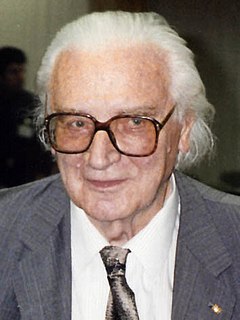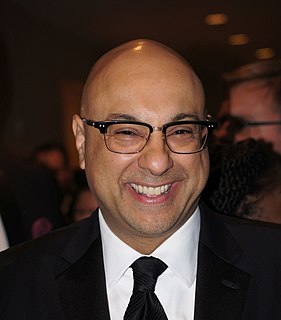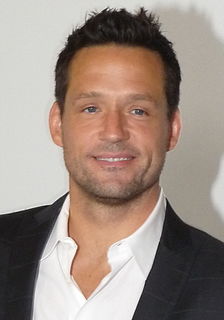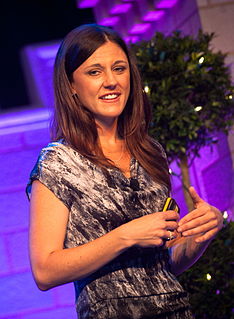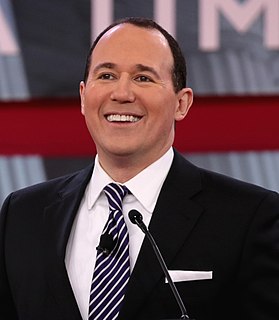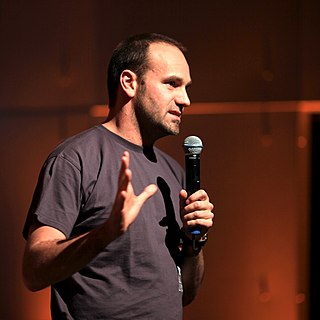A Quote by Katharine Viner
In the digital age, it is easier than ever to publish false information, which is quickly shared and taken to be true - as we often see in emergency situations, when news is breaking in real time.
Related Quotes
Of course, we knew that the official reports were sketchy, if not falsified. But, in terms of information theory, this is precisely where the problem lay: How were we to reconstruct reality from incomplete or false reports? It is not true that virtually all news in a totalitarian state is false. On the contrary, most news is completely correct, albeit tendentiously slanded; it is just that certain information is suppressed. One can adjust for the political slanting of the news, but there is virtually no way to fill in the omissions.
The weakness of cable news is that it chases its audience around. Your audience wants fast-paced, popular news. It needs real news. Cable news changes its stripes based on audience reaction. Viewers are reacting well to breaking news? You probably do more breaking news than you need to. The struggle is building something so that people will come to you, as opposed to constantly changing what you are because you're unsure of where the audience is.
There are many benefits to a sports entity breaking news directly to their recipients: the entity has full control over the message and how it is shared versus previously relying on a media outlets to translate or distribute as they choose. Also, there's no quicker place for valuable information to spread than Twitter.
What I say is that there are not half a dozen papers in the United States which tamper with the news, which publish what they know to be false. But if I thought I had done no better than that, I would be ashamed to own a paper. You have to make everyone connected with the paper believe that accuracy is to a newspaper what virtue is to a woman.
Although it is easier to find information these days, it is easier than ever before to find misinformation, pseudo-facts, unsupported and fringe opinions, and the like. Children should be taught at an early age what constitutes evidence, how to detect biases or distortions in newspaper accounts, and that there exist hierarchies of information sources. In the medical field, for example, a controlled experiment published in a peer-reviewed journal is a better source than a blog by the Ginseng Growers Association, promoting the health benefits of their own product.
Don't lies eventually lead to the truth? And don't all my stories, true or false, tend toward the same conclusion? Don't they all have the same meaning? So what does it matter whether they are true or false if, in both cases, they are significant of what I have been and what I am? Sometimes it is easier to see clearly into the liar than into the man who tells the truth. Truth, like light, blinds. Falsehood, on the contrary, is a beautiful twilight that enhances every object.
Free software is part of a broader phenomenon, which is a shift toward recognizing the value of shared work. Historically, shared stuff had a very bad name. The reputation was that people always abused shared things, and in the physical world, something that is shared and abused becomes worthless. In the digital world, I think we have the inverse effect, where something that is shared can become more valuable than something that is closely held, as long as it is both shared and contributed to by everybody who is sharing in it.
WikiLeaks does not publish from the jurisdiction of Ecuador, from this embassy or in the territory of Ecuador; we publish from France, we publish from, from Germany, we publish from The Netherlands and from a number of other countries, so that the attempted squeeze on WikiLeaks is through my refugee status; and this is, this is really intolerable. [It means] that [they] are trying to get at a publishing organisation; [they] try and prevent it from publishing true information that is of intense interest to the American people and others about an election.
But although in theory physicists realize that their conclusions are ... not certainly true, this ... does not really sink into their consciousness. Nearly all the time ... they ... act as if Science were indisputably True, and what's more, as if only science were true.... Any information obtained otherwise than by the scientific method, although it may be true, the scientists will call "unscientific," using this word as a smear word, by bringing in the connotation from its original [Greek] meaning, to imply that the information is false, or at any rate slightly phony.

